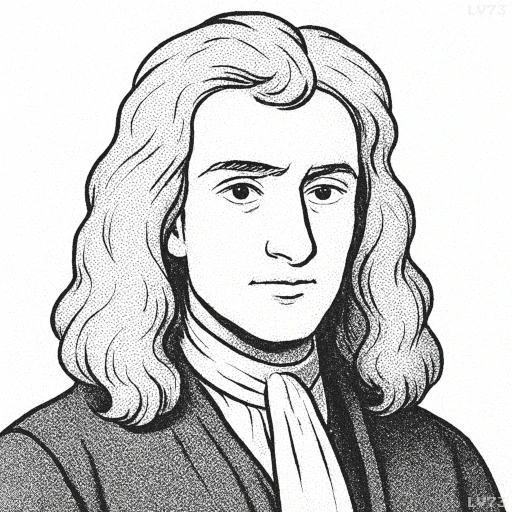“God in the beginning formed matter in solid, massy, hard, impenetrable, movable particles, of such sizes and figures, and with such other properties, and in such proportion to space, as most conduced to the end for which he formed them.”

- January 4, 1643 – March 31, 1727
- Born in England (UK)
- Natural philosopher, mathematician, physicist, astronomer, theologian
table of contents
Quote
“God in the beginning formed matter in solid, massy, hard, impenetrable, movable particles, of such sizes and figures, and with such other properties, and in such proportion to space, as most conduced to the end for which he formed them.”
Explanation
In this quote, Isaac Newton is expressing his belief in a divinely ordered universe, where matter was created by God with specific properties that align with a greater purpose or design. Newton describes matter as being made up of particles that are solid, massy, hard, impenetrable, and movable, suggesting a very mechanical and ordered view of the universe. These particles, according to Newton, were carefully designed in terms of their size, shape, and properties to serve the purpose for which God created them. Newton’s understanding of the physical world was grounded in the idea that the laws of nature were a reflection of a divine plan, and that the universe operated according to rational principles set forth by a Creator.
Newton’s scientific worldview was deeply intertwined with his religious beliefs. Although he is now regarded as one of the founders of modern science, he saw his work as a way of uncovering the laws and principles that God had instituted in the universe. In this quote, he is explaining that the properties of matter and the physical laws that govern the universe are not random, but instead are part of a divine design that has a purpose. This view reflects Newton’s belief in the intelligibility of the universe—that nature is governed by laws that can be discovered through careful observation, reasoning, and mathematical analysis.
In modern terms, Newton’s description of matter as consisting of particles with specific properties foreshadows later developments in atomic theory and quantum mechanics. Today, we understand that matter is composed of atoms and subatomic particles, each with unique properties that determine how they interact with each other and with energy. While the scientific community today may not attribute these properties to a divine creator, Newton’s view of the universe as having a rational and purposeful structure continues to resonate in fields like physics, where researchers continue to explore the underlying principles that govern the behavior of matter and energy. Newton’s belief in a divinely ordered universe remains an important historical perspective, showing how science and faith were once seen as complementary paths to understanding the natural world.
Would you like to share your impressions or related stories about this quote in the comments section?
